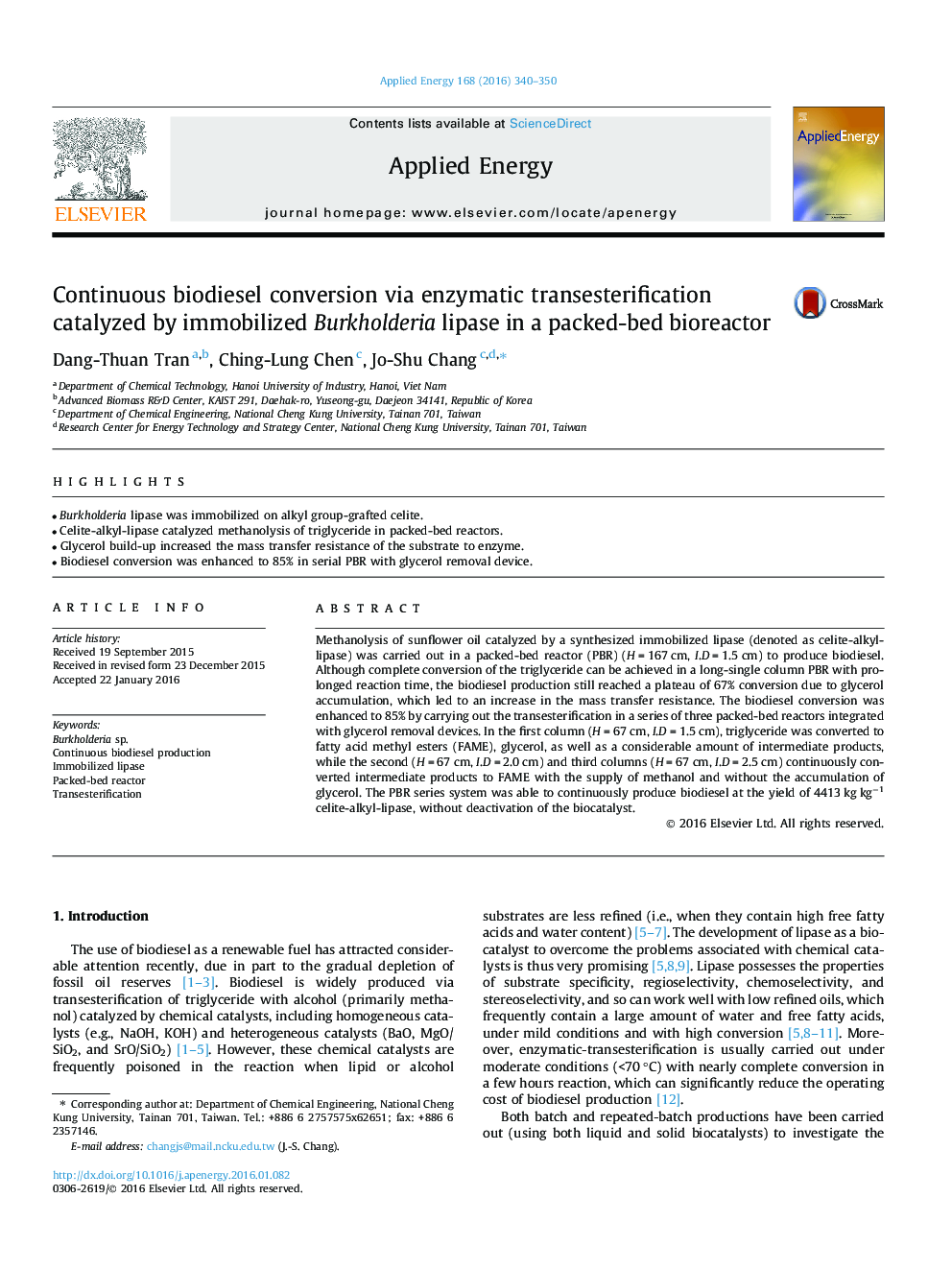| Article ID | Journal | Published Year | Pages | File Type |
|---|---|---|---|---|
| 6683804 | Applied Energy | 2016 | 11 Pages |
Abstract
Methanolysis of sunflower oil catalyzed by a synthesized immobilized lipase (denoted as celite-alkyl-lipase) was carried out in a packed-bed reactor (PBR) (H = 167 cm, I.D = 1.5 cm) to produce biodiesel. Although complete conversion of the triglyceride can be achieved in a long-single column PBR with prolonged reaction time, the biodiesel production still reached a plateau of 67% conversion due to glycerol accumulation, which led to an increase in the mass transfer resistance. The biodiesel conversion was enhanced to 85% by carrying out the transesterification in a series of three packed-bed reactors integrated with glycerol removal devices. In the first column (H = 67 cm, I.D = 1.5 cm), triglyceride was converted to fatty acid methyl esters (FAME), glycerol, as well as a considerable amount of intermediate products, while the second (H = 67 cm, I.D = 2.0 cm) and third columns (H = 67 cm, I.D = 2.5 cm) continuously converted intermediate products to FAME with the supply of methanol and without the accumulation of glycerol. The PBR series system was able to continuously produce biodiesel at the yield of 4413 kg kgâ1 celite-alkyl-lipase, without deactivation of the biocatalyst.
Related Topics
Physical Sciences and Engineering
Energy
Energy Engineering and Power Technology
Authors
Dang-Thuan Tran, Ching-Lung Chen, Jo-Shu Chang,
